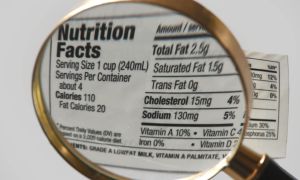Advertisement
No, this is a fallacy. Our bodies are born with a certain number of fat cells, but that number can change. If we take in more Calories than our bodies need, this surplus will be converted and stored in the available fat cells (adipocytes). Once those are full, if we continue to take in a surplus, these adipocytes will divide, creating two from one, and four from two, and so on. Scientists believe this is one of the reason people weight cycle, and each time it appears to be harder to lose weight -- because in fact there are more fat cells that have the potential to expand each time around.
Continue Learning about Fats
Important: This content reflects information from various individuals and organizations and may offer alternative or opposing points of view. It should not be used for medical advice, diagnosis or treatment. As always, you should consult with your healthcare provider about your specific health needs.







